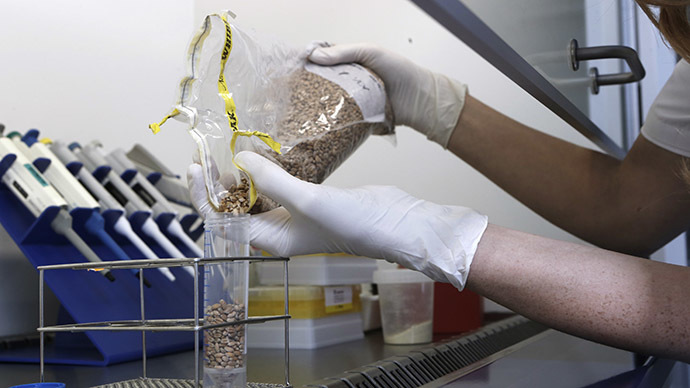'Genetic firewall' discovery to make GMOs containable, scientists say

Scientists believe they have created a breakthrough in genetic engineering. They have come up with bacteria, which can’t survive without a manmade chemical, so genetically modified organisms wouldn’t be able to live outside their intended area.
The discovery has been dubbed the ‘genetic firewall’ and the aim is that genetically modified crops grown in fields, would no longer be able to contaminate other unmodified crops.
The breakthrough was reported in the journal Nature and has so far only been tested on bacteria. However, George Church, from Havard Medical School believes the technique could be used on plants or animals and said, “I think we are moving in (that) direction.”
READ MORE: Cultivated lie? Most US food labeled ‘natural’ contains GMOs, watchdog says
Human engineered microbes are vital to the pharmaceutical and chemical industries, as they help to produce biofuels and drugs.
Church, one of the members of the project, says the team redesigned the Escherichia coli (E-coli) genome by making 49 changes. The alterations were introduced to ensure the genome would be dependent on a genetically made amino acid.
“Because the amino acids don’t exist in nature, the resulting ‘firewall’ means any GMOs that escaped a lab manufacturing facility, or agricultural field would die,” said Farren Isaacs, a former colleague of Church now at Yale University.
READ MORE: Monsanto-killer or ‘Trojan Horse’? New law lets EU states ban GM crops
This modification would also prevent viruses from contaminating the genome, because they wouldn’t be able to replicate in altered microbes.
If the technique succeeds, it means microbes could be used to engineer products like yoghurt and cheese. However, new possibilities, varying from dispersing oil spills to producing insulin, could also be on the horizon.












